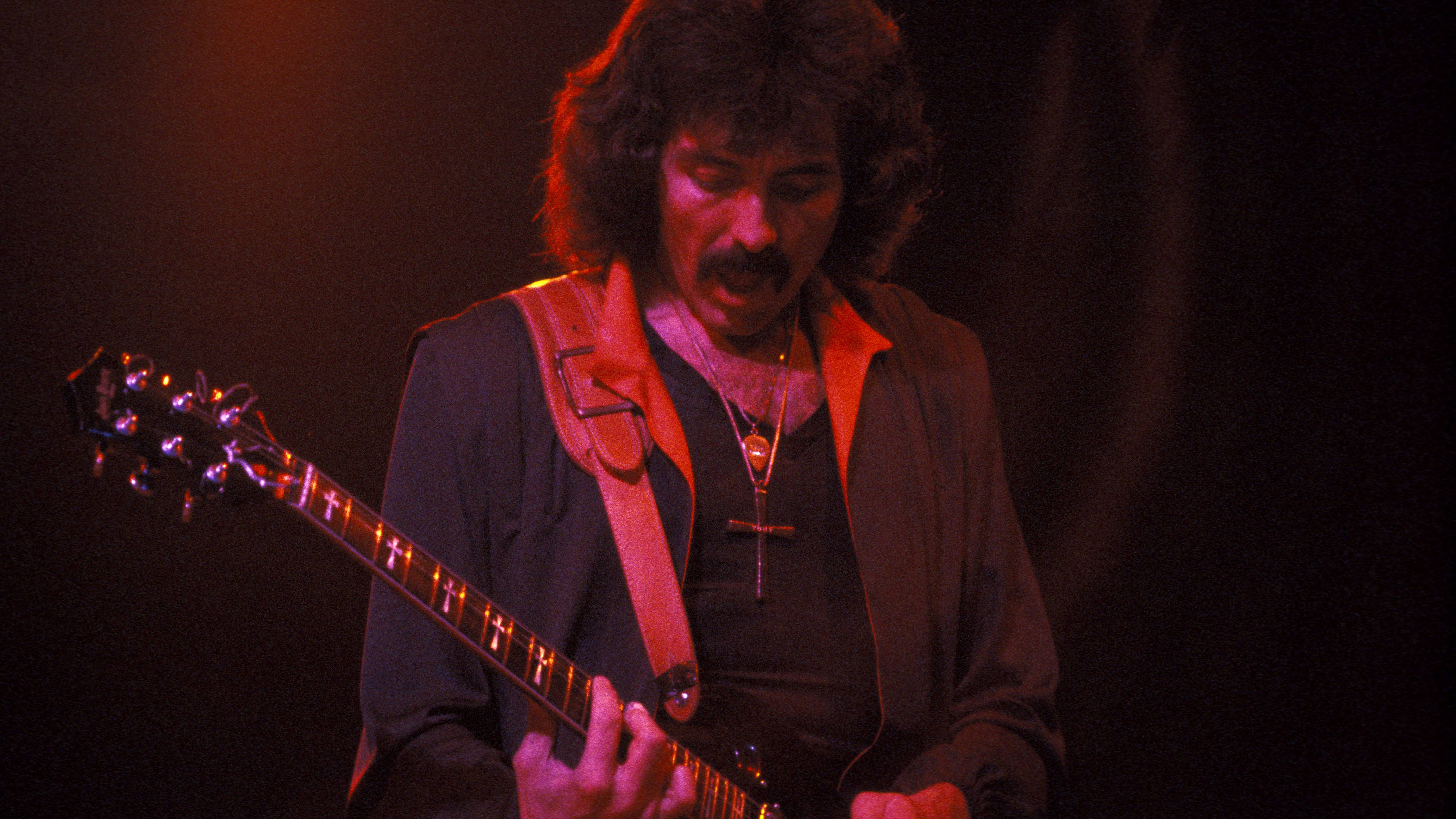
When Ozzy Osbourne was kicked out of Black Sabbath in 1979, fans were stunned. But as guitarist Tony Iommi insisted, the only other option the band had was to split up.
In an interview with Classic Rock, Iommi recalled how the problem with Osbourne came to a head in Los Angeles during sessions for Sabbath’s ninth album.
“We had some chats with Ozzy," Iommi said. "Whether he’d remember them or not, I don’t know.
“I was in a terrible position, because I was the one who used to go to meetings with the record company. I’d go over to Warner Brothers and they’d say: ‘How’s the album coming along?’ ‘Oh, alright.’ ‘When can we hear some tracks?’ ‘Um, soon…’
“I was lying. It just wasn’t happening. We were coming up with riffs, but Ozzy just wasn’t into it anymore.
“He’d done too much of everything. A lot of times when we were working, he’d be asleep on a couch.”
Osbourne would later claim that being sacked by Black Sabbath for drinking too much and doing too many drugs was akin to being “hung by a jury of murderers”.
Iommi maintained that the band’s bassist Geezer Butler and drummer Bill Ward were in agreement that Osbourne had to go.
“It wasn’t just my decision to fire him,” the guitarist said. “It was a decision made by all three of us.
“It was Bill who told Ozzy. Ozzy probably thought I was behind it all, but it was a band decision. It was either we break up or we carry on without him.”
Iommi also admitted that he had contacted another singer, Ronnie James Dio, before the decision to fire Osbourne was made — and that the contact was made via Ozzy’s future wife and manager Sharon Arden.
“I got in touch with Ronnie through Sharon,” Iommi said. “I met Ronnie at a party.
“I really didn’t feel happy with the way things were going with Ozzy. I thought about doing something with Ronnie. And then when we split with Ozzy, I said to the others, ‘Well, why don’t we try Ronnie?’
“We’d heard the Rainbow albums with Ronnie singing. I thought we had to try to see what we could do with him.”
American singer Ronnie James Dio had made four albums with Rainbow, the band led by ex-Deep Purple guitarist Ritchie Blackmore.
The second of these albums, Rising, was released in 1976 and featured the classic track Stargazer.
In 1978, however, Ritchie Blackmore decided to pursue a more commercial hard rock direction with Rainbow — a move which resulted in Dio being replaced by British vocalist Graham Bonnet.
Dio was therefore available when Iommi made his approach.
Iommi knew that it was a gamble. But this was one gamble that really paid off.
“Ronnie had so much against him,” Iommi said. “It was so hard for him to walk into a band as established as we were, and he wasn’t a big chap, just a little guy.
“But I just looked at the size of the talent. He sang so well.
“As soon as we heard Ronnie sing with us, we knew he was the right man. It was different to what we’d done, but there wasn’t much else we could do.
“We started writing completely differently, because Ronnie was such a different kind of singer. If we had got another singer who sounded like Ozzy, I think that would have been worse. It had to be something different. The music we wrote with him was a different approach.
“It was like we were starting over again. But it made us fight again. We’d lost that fight — you get too comfortable. It made us have to work again, it kicked us up the arse, and that was good for the band.”
With Dio in place of Ozzy, a rejuvenated Black Sabbath created one of the greatest albums of their career — Heaven And Hell.
Released in March 1980, the album included a monumental title track and others destined to become classics — Neon Knights, Children Of The Sea and Die Young.
In September of that year, Ozzy Osbourne bounced back with his first post-Sabbath album, Blizzard Of Ozz, featuring a new guitar hero in Randy Rhoads.
Over time, Heaven And Hell would be acclaimed as a true Sabbath classic and arguably the crowning glory of Ronnie James Dio’s career.
Back in 1980, what this album represented for Tony Iommi was a new beginning and a complete validation.
“I had an excitement about the band again,” Iommi said. “I had to keep this band going. I’ve never been one to give up. I had to fight and to try and make it work.
“It would have been so easy to have turned my back on it and just said, ‘That’s it.’ But I couldn’t do that. I had to go with it and make it work. And it did.
“Heaven And Hell turned out to be great album. Black Sabbath hadn’t died. We were back out there with Ronnie and the band was great again.”







